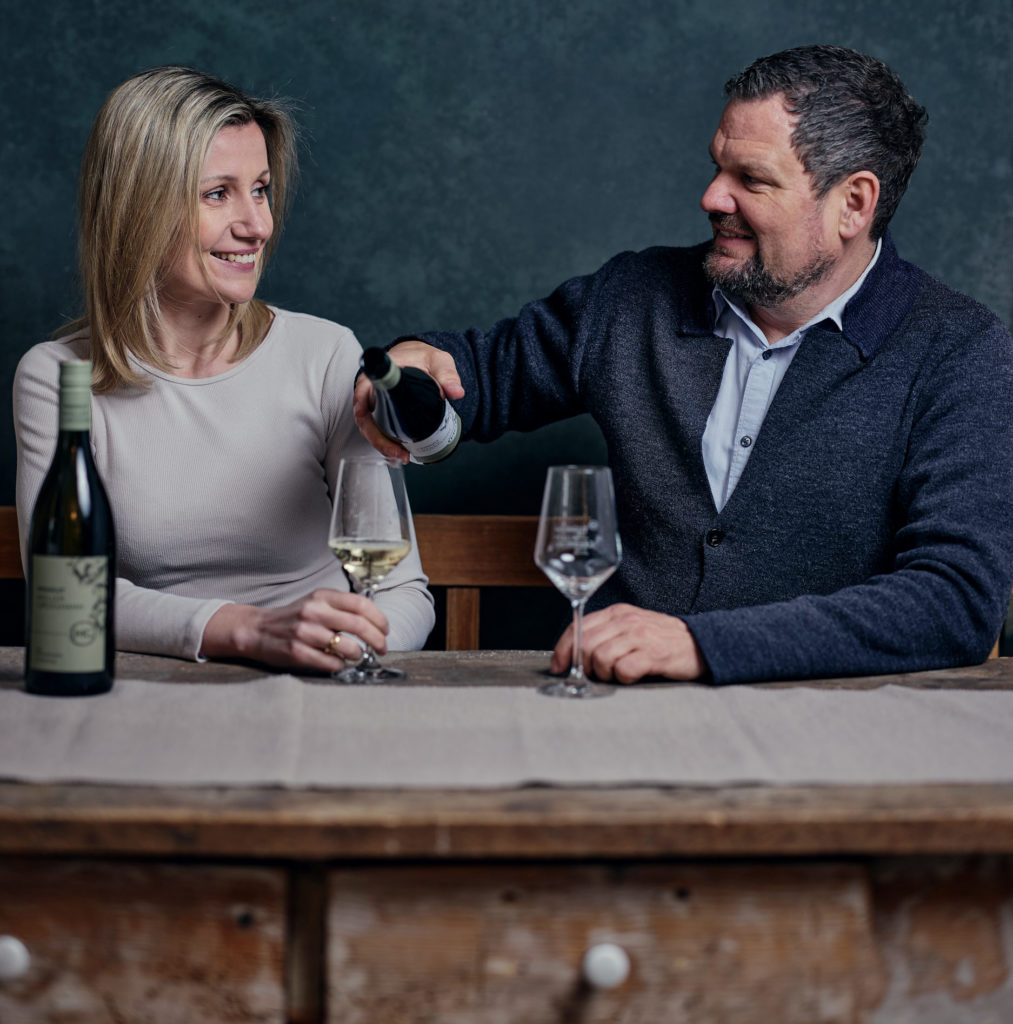
A family history
Helma Müller-Grossmann, the humorous and passionate winemaker, senior boss and grandmother, has run the winery since 1986 with great commitment, but never doggedly – which was probably one of the reasons for her popularity. Tradition meant a lot to her – from this point of view she also saw the entry of her daughter Marlies into the business in 2009 – as a continuation of her tradition. Sadly, Helma passed away suddenly and too early in February 2023.
Marlies Hanke, our winemaker of the present, runs the winery. She developed the wines and the business steadily over the last 10 years. Her husband Florian works full time in the interior design industry, but supports neatly on the side and his ideas are noticeable in many places. On the one hand, fashion trends win the two a lot – but for Marlies and Florian, tradition and origin must never be lost in them either.
And when they are not busy with wine, their children Anna and Otto, as well as their dog Bruno, keep the family busy.
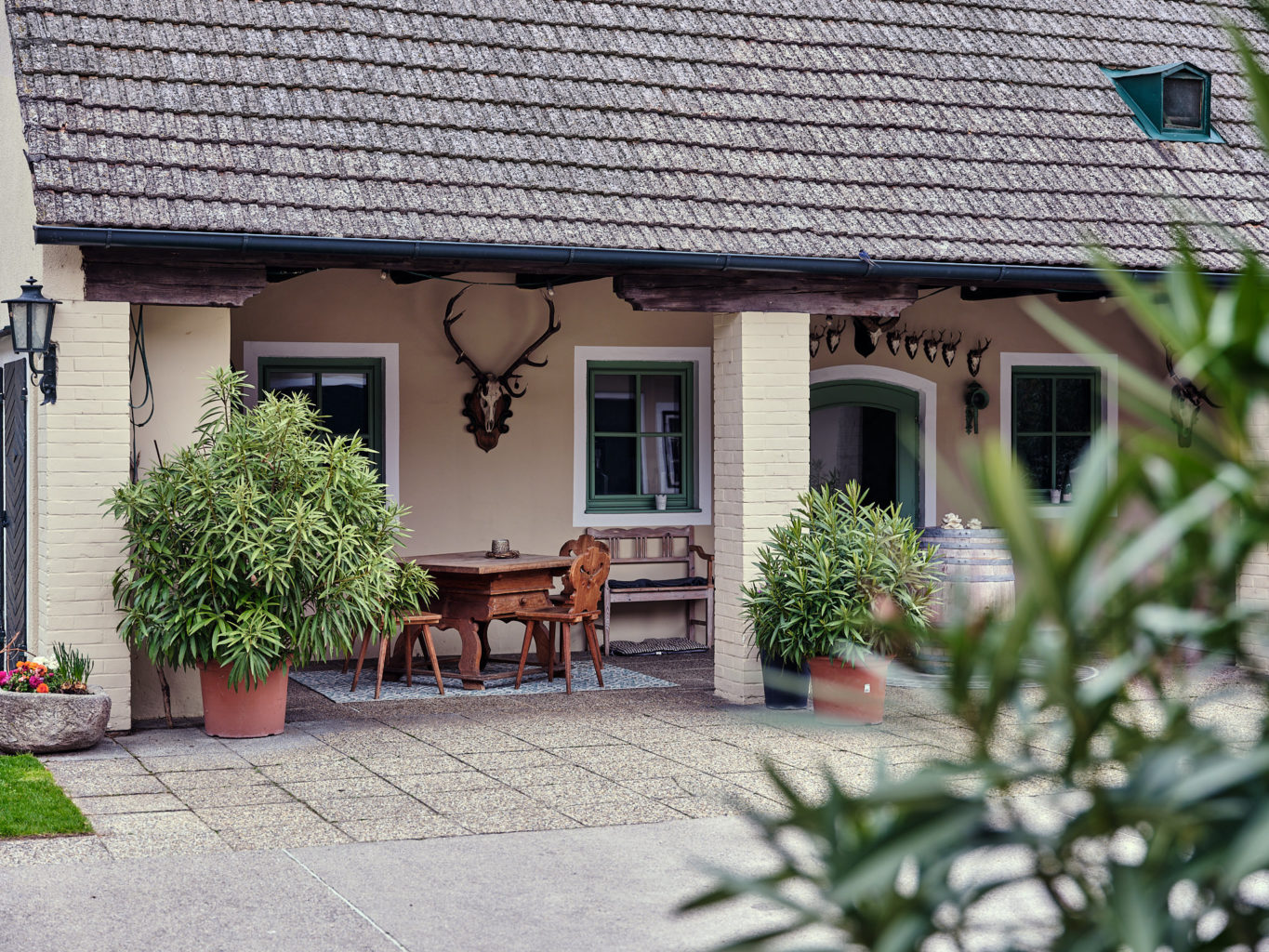
Atmosphere to feel good
The courtyard in Lindengasse has always been the meeting place and invites you to linger. The family’s main house is located there, and tastings take place there.
As soon as you enter the courtyard, you are loudly greeted by Bruno the dog, who is just expressing his joy. In any case, it’s worth a visit.
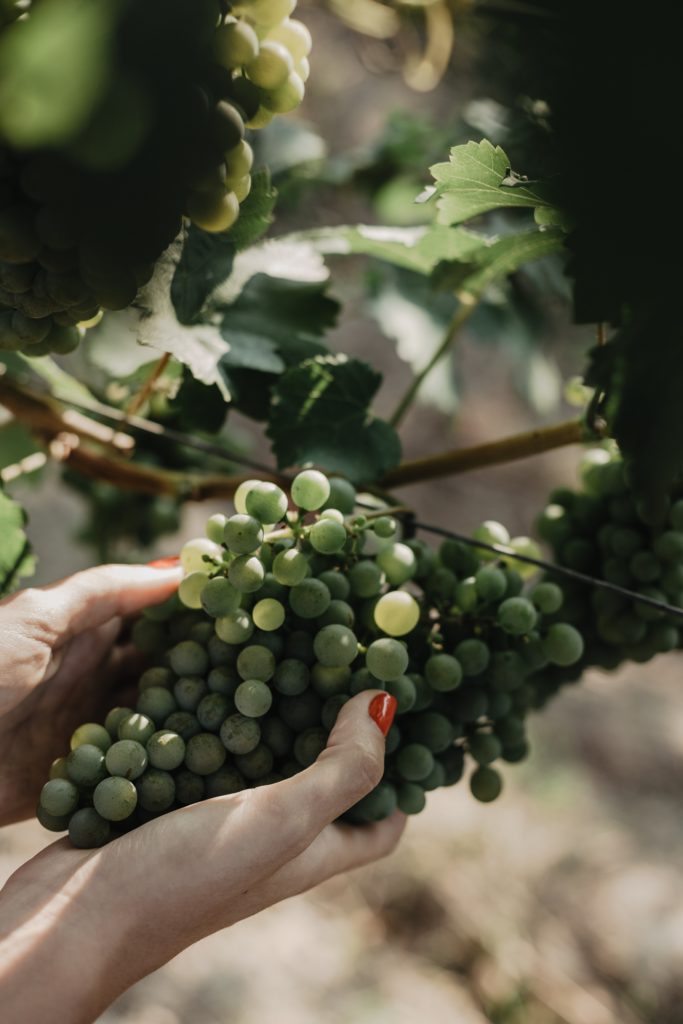
Life in the cycle of nature
The southern Kremstal is a very versatile wine-growing region. This is also thanks to the great variety of soils – and the natural interplay of warm days and cool nights. Where rather cool, moist influences from the nearby Waldviertel meet warm, dry ones from the Pannonian lowlands, juicy, finesse-rich white wines, especially Grüner Veltliner and Riesling, grow on the gravel and loess soils. These vineyards are exclusively farmed organically.
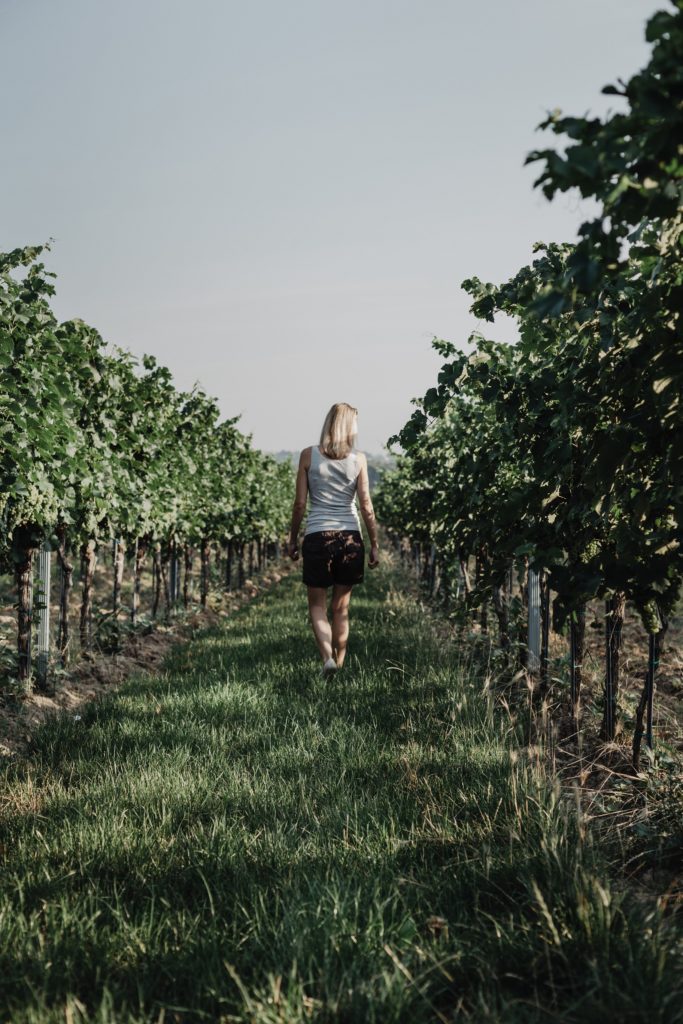
In conversion to organic & certified sustainable
In the summer of 2021, the organic control contract was signed and the winery is now in conversion to organic farming. This process takes three years, after which they are a certified organic farm.
For many years, sustainability has been an important topic in agriculture – increasingly also in viticulture. This raises the question: “What does sustainable viticulture that produces high-quality wine look like in terms of ecology, economy and social components?” The farm has undergone this certification process and year after year receives the certificate for “Sustainably Produced Wine from Austria” from the inspection body Lacon GmbH. The labels also bear this information.
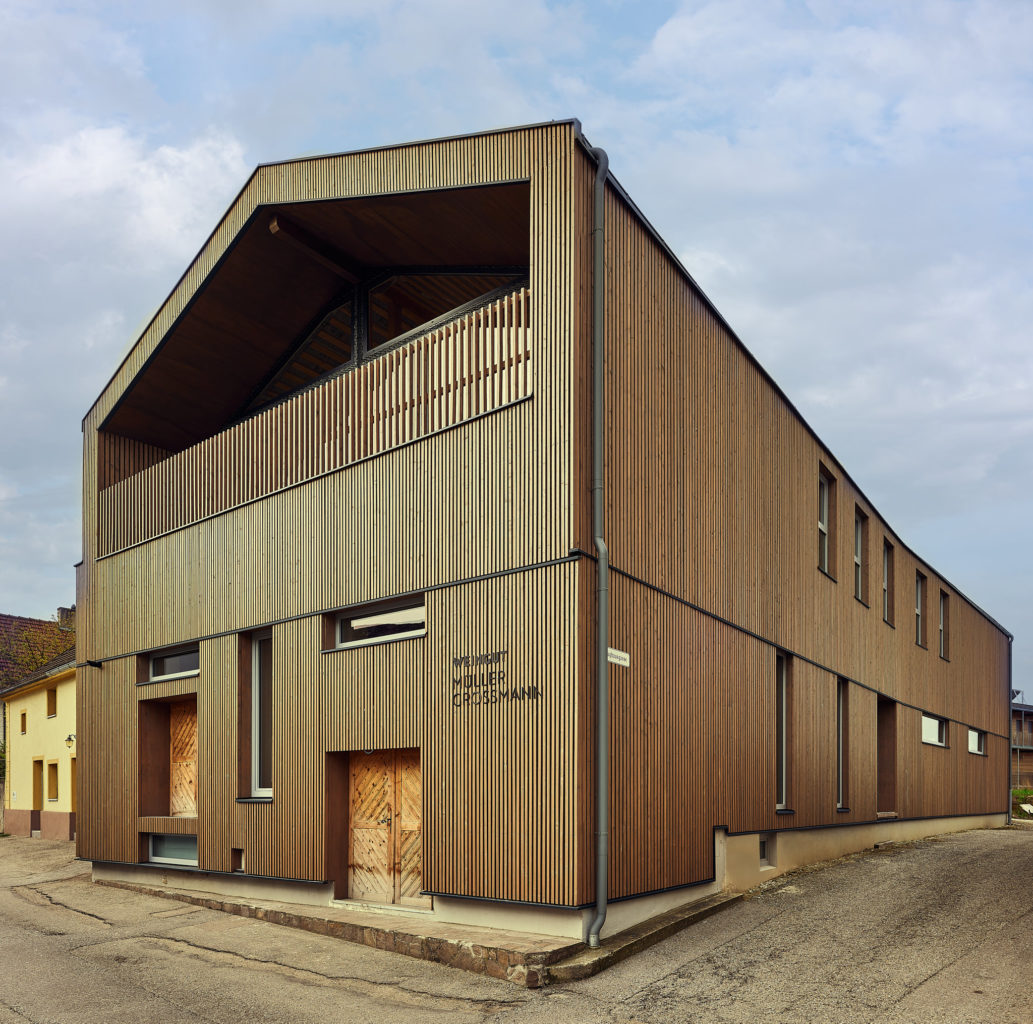
Where the wine is made
Wine has been made in the traditional and underground wine cellar in Fuchastraße for more than 90 years. Natural room cooling and natural yeasts are two arguments that led to the renovation of this traditional building. And simply the fact that old things are worth preserving and a new building on a greenfield site would not correspond to the long-standing tradition and is not always the better way.
The wine cellar was extended to include a warehouse and offers more flexibility in production. The shape of the building, as well as the wooden façade, should fit nicely into the townscape and represent the combination of tradition and modernity.
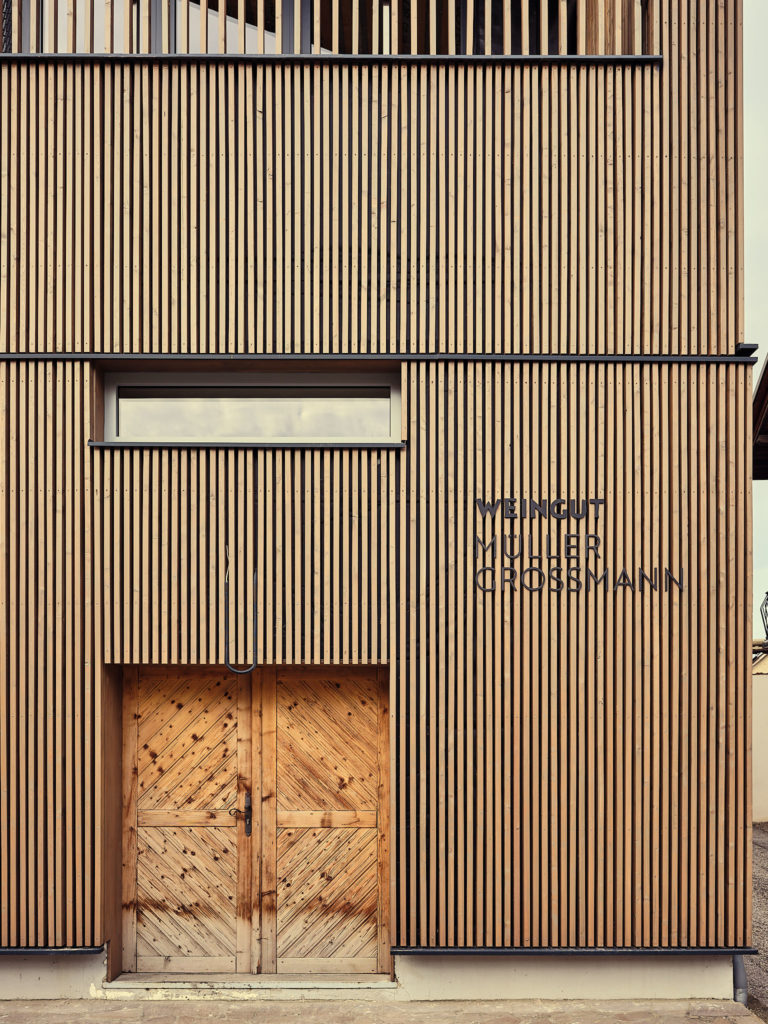
Perfection in the wine cellar
As we all know, quality begins in the vineyard. Only wonderful grapes can produce wonderful wine. The perfection takes place in the wine cellar. Here we work according to the principle ‘less is more’.
The traditional wine cellar offers ideal climatic and microbiological conditions for the fine-tuning of the wines.
Every year, a part of the site wines – very much in large bottles – is reserved for our vinotheque. There they have the opportunity to develop wonderfully. If you are interested, please ask for our rarities or special vintages.
